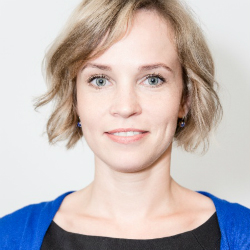To celebrate 100 years of Estonian independence, Estonia’s Ministry of the Interior plans to develop the world’s first Digital Nomad Visa.
This will build on the country’s past ten years in which it has become one of the most digitally advanced nations with groundbreaking initiatives like borderless banking and e-Residency.
The Digital Nomad Visa will allow non-Estonians access to Estonian services from abroad. The Estonian Ministry of the Interior, working with the Jobbatical jobs platform, aspires to champion today’s workforce with the Digital Nomad Visa.

Killu Vantsi, Legal Migration Adviser, Estonian Ministry of the Interior, commented: “Migration policy has to take into account the fact that in today’s globalised world, people are more mobile, often combining work and travel.
“Estonia is at the forefront of e-solutions and our e-Residency programme has already become very popular among digital nomads, allowing them location-independent access to Estonian e-services. It is therefore not surprising that the digital nomad community has suggested creating a special visa to facilitate the entry of digital nomads to Estonia.
“With the help of Jobbatical, the Ministry of Interior is currently gathering input from the digital nomad community to analyse the possibility of creating a “Digital Nomad Visa.”
The Digital Nomad Visa
The aim of a ‘Digital Nomad Visa’ is to enable digital nomads to work and travel in Estonia for up to 365 days. The visa would also give these digital nomads access to the Schengen Area (a zone comprising 26 European states that have officially abolished passport controls), thereby allowing them to travel in other EU Member States for up to 90 days. Following an advisory period, work will start on developing a formal proposal for legislation to bring the visa into law.
Generally, a digital nomad is considered as a location independent worker who performs the majority of his or her work online. During the advisory process, leading labour mobility experts will assess this definition before eventual incorporation into a legislative proposal.
Digital Nomad Visa support and research
To support the development of the new visa, Jobbatical conducted a survey of over 1,000 members of its digital community. The results show that:
- respondents overwhelmingly (92%) said they were current or aspiring digital nomad
- four out of five (81%) of all respondents also said they would like to work in a new country on an annual basis
- almost all (99%) current or aspiring digital nomads say a simplified visa process would improve their ability to become location independent.
As part of the research respondents identified some 34 separate barriers to borderless work. Visa complications made up the largest single issue (10%) of the total. (Findings are based on a sample size of 1,050 respondents conducted between the 8th and 20th of February 2018. Respondents belong to Jobbatical’s digital community comprising current, former and aspiring digital nomads.)
Jobbatical and Karoli Hindriks

Karoli Hindriks, CEO & founder of Jobbatical, said: “Supporting digital nomads on their career journey has been one of the founding principles behind Jobbatical. Our purpose is to create bridges, not walls, by inspiring knowledgeable people to discover their dream work locations across the globe.
“The world of work is rapidly changing. Technology is helping more people than ever before to work remotely, allowing millions to offer businesses technical and creative expertise independent of geography. A Digital Nomad Visa represents a breakthrough in the way governments support today’s mobile workforce. We’re delighted to support the Ministry of Interior and are looking forward to making borderless working a reality for digital nomads everywhere.”
Jobbatical, started in 2014, offers an open jobs platform. It has more than 100,000 users who come from 150+ countries. The company connects job seekers with companies in search of talent around the world.
What does this mean
The announcement comes as Estonia celebrates its 100th anniversary (albeit punctuated by the Soviet and Hitlerian invasions) of independence. It believes the Digital Nomad Visa will strengthen the country’s position as Europe’s leading digital nation as it builds e-Residency and the accompanying banking, taxation , registration and other services.
It all sounds good. Yet, as always, the devil will lie in the defining how Estonia defines a Digital Nomad Visa as well as acceptance by fellow EU partners and other countries. Wtihout such acceptance a Digital Nomad Visa will add up to little – especially if it become a vehicle for illegality.
Yet, that said, Estonia is more than usually aware of the dangers with the Digital Nomad Visa. Besides hosting the NATO Cooperative Cyber Defence Centre of Excellence in Tallinn, it has one of the few EU borders with Russia and a population with around 25% native Russian speakers.

























